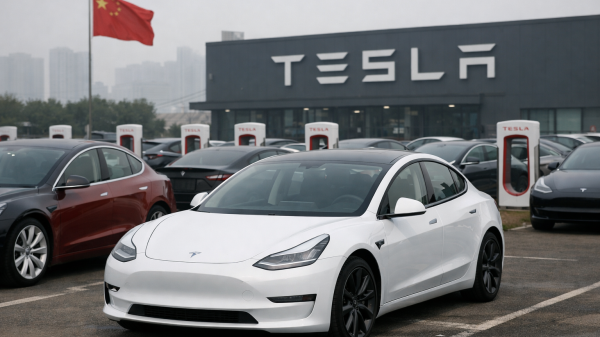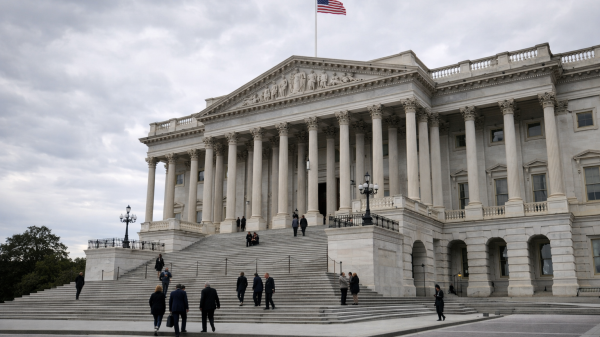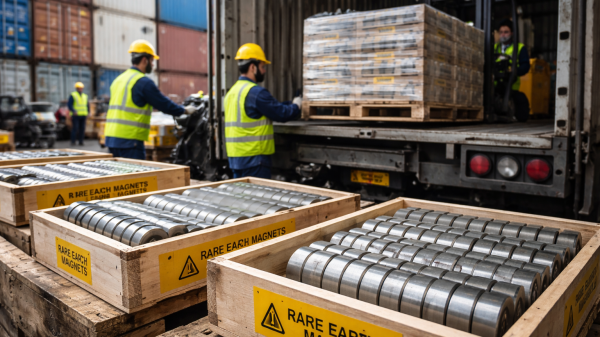The security of Germany’s gold reserves stored abroad, especially in New York, has transitioned from a fringe topic discussed primarily by the far-right and gold enthusiasts to a subject of broader public discussion following Donald Trump’s return to the White House.
The Alternative for Germany (AfD), a right-wing party in Germany, has supported demands for the repatriation of the nation’s gold reserves abroad, a topic that has drawn attention to those holdings in the past, according to a Reuters report.
Germany’s central bank, the Bundesbank, possesses the world’s second-largest gold reserves, totaling 3,352 tonnes.
A significant portion, one-third of this amount, is held at the Federal Reserve Bank of New York. This arrangement is a legacy of the Cold War era and the post-World War II monetary system.
US President Trump’s recent disputes with long-term allies regarding trade and security, along with his criticism of the Federal Reserve, have reignited a previously subdued issue.
Consequently, more mainstream commentators are now engaging in this discussion.
Trump threat
The German Taxpayers Federation has recently urged both the Bundesbank and the Finance Ministry, through letters sent this week, to bring back Germany’s gold reserves currently held in the United States.
Michael Jaeger, vice-president of the Taxpayers Federation, stated to Reuters that Trump’s desire to control the Federal Reserve would extend to controlling German gold reserves held in the US.
Jaeger emphasized:
It’s our money, it should be brought back.
According to Markus Ferber, a prominent German member of the European Parliament from the Christian Democrats, the US can no longer be considered the dependable ally it once was.
“Trump is erratic and one cannot rule out that someday he will come up with creative ideas how to treat foreign gold reserves,” he was quoted in the report.
“The Bundesbank’s policy for gold reserves has to reflect the new geopolitical realities.”
Public broadcasters, ZDF and ARD, have also recently aired reports questioning the security of Germany’s gold reserves stored in New York.
The Bundesbank stated that the New York Fed continues to be “an important storage location” for its gold reserves.
Mistrust in Fed
Any suggestion that Germany is contemplating relocating its gold reserves from New York is a politically delicate matter. Such a move could be construed as a sign of mistrust in the Federal Reserve and its autonomy.
The European Central Bank recently affirmed its confidence in the Federal Reserve as a dependable ally.
However, concerns have arisen regarding the Fed’s future autonomy and its enduring commitments to its counterparts due to Trump’s repeated criticism of Fed Chairman Jerome Powell, whose tenure concludes in one year.
Peter Boehringer, the AfD lawmaker who spearheaded the initial gold repatriation campaign a decade ago, expressed satisfaction that the mainstream media and fellow lawmakers are now discussing this issue.
He believes this development validates his long-standing efforts.
When I started asking about the gold, I was dismissed as a conspiracy theorist,” he said. “Today, after Trump, my concerns are shared widely.
Gold accumulation
During the export surge of the 1950s and 1960s, Germany amassed the majority of its gold reserves.
A significant benefit of holding a portion in New York throughout the Cold War was its secure location, far from potential Russian invasion.
The presence of gold further solidified a military alliance with the US.
This alliance is underscored by the continued presence of numerous American military bases in Germany, including the largest such installation in Europe.
Between 2014 and 2017, the Bundesbank repatriated 300 tonnes of gold from New York, a move intended to bolster domestic confidence following the dissolution of the Soviet Union.
Russia’s invasion of Ukraine and the implied danger it poses to the rest of Europe will probably further complicate Germany’s geopolitical considerations.
Need for diversification
Ferber’s experience highlighted the necessity of diversifying gold reserves across multiple, potentially new, locations.
Currently, Germany’s gold is stored at the Bundesbank in Frankfurt, the Federal Reserve Bank of New York, and the Bank of England in London.
“For gold reserves, diversification is key. Having all eggs in too few baskets is never advisable,” Ferber said in the report.
The Bundesbank stated that it conducts routine sample tests and has examined 13% of its New York stock over time.
The post Trump’s influence sparks questions about security of Germany’s gold in New York appeared first on Invezz




































